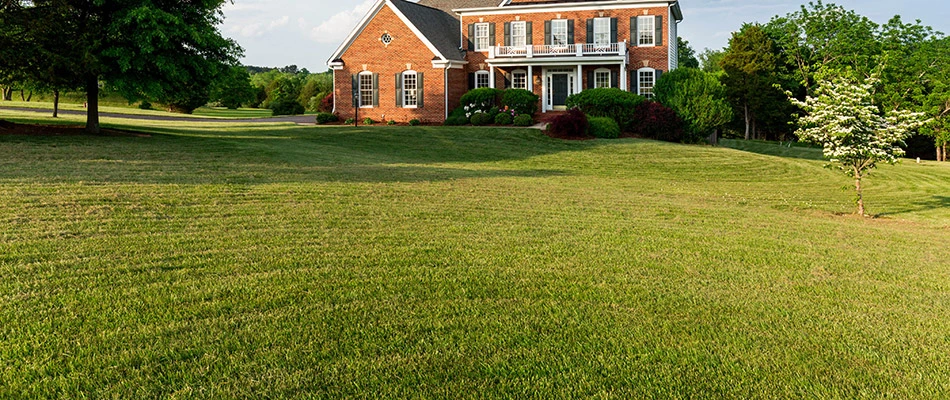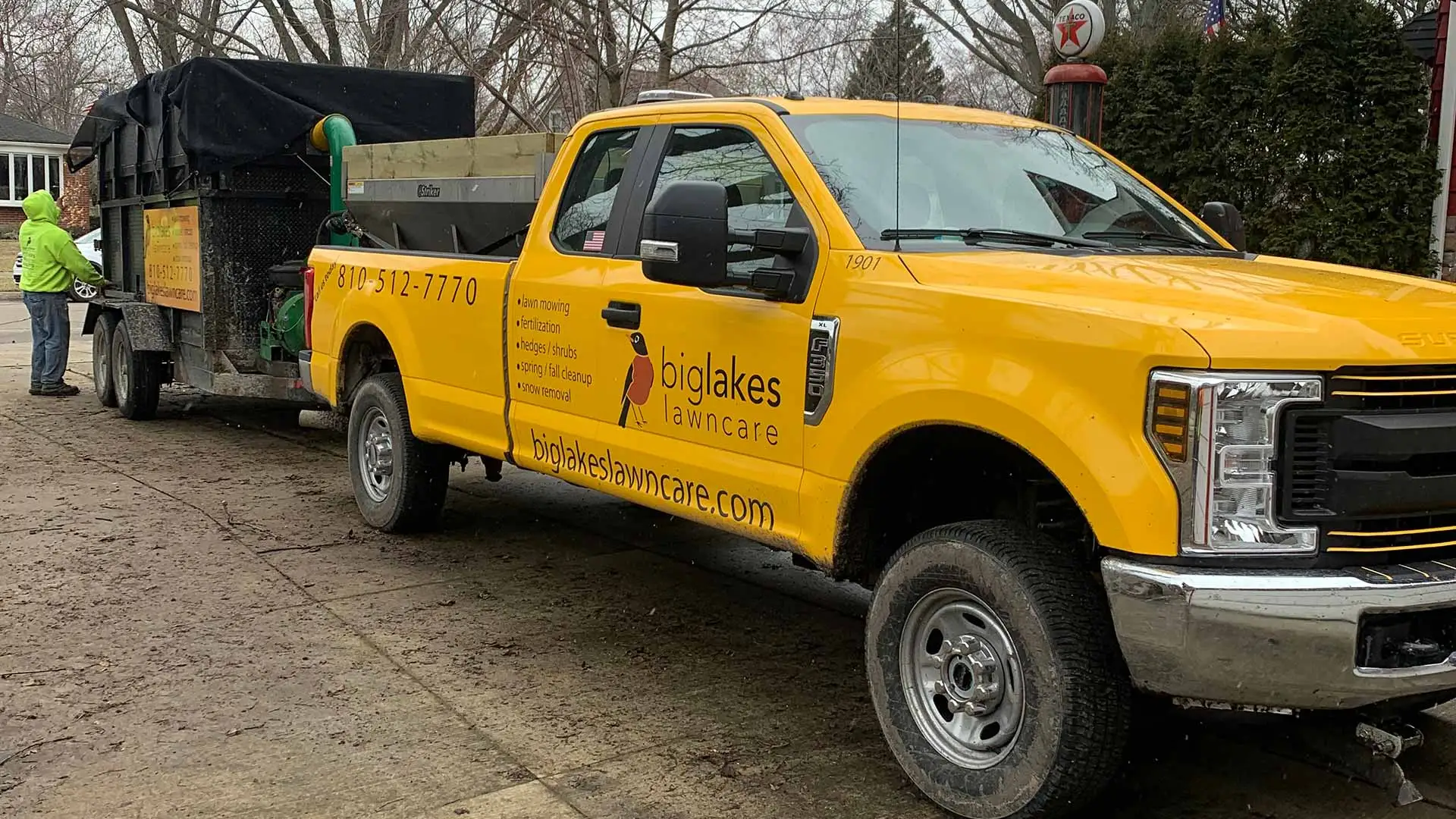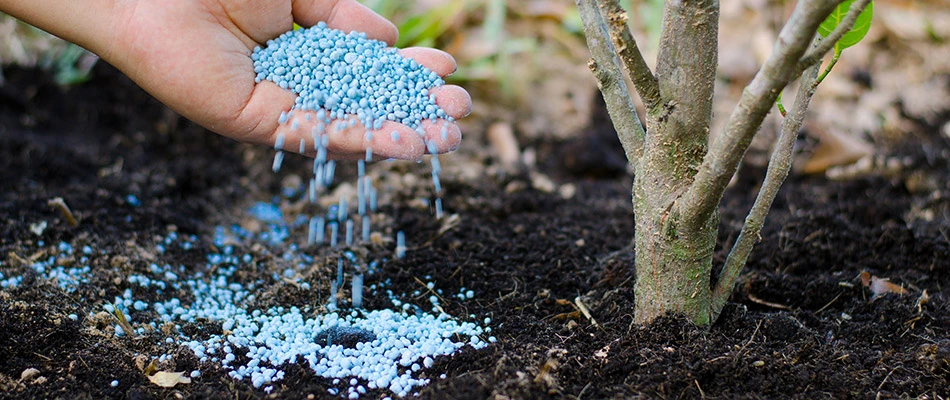Lawn fertilization is a step that many homeowners tend to accidentally overlook. If you want an enviously green lawn to show off to your neighbors and visitors, improving the quality of your soil and grass is key. However, things like finding the right fertilizer, knowing when to fertilize, and how often to fertilize, can prove to be a bit tricky without professional lawn care knowledge.
The Big Lakes Lawncare team has the training, equipment, and expertise to keep your lawn in the best possible condition. We have extensive knowledge of lawn care methods and treatments. Alas, here’s everything you need to know about lawn fertilization.
How do I know if my lawn needs fertilizing?
There are a few signs that suggest it’s time to have your lawn fertilized. The most common being slow growth and yellowing spots. In more severe cases, you may see thinning or dead spots. Soil nutrients are essentially food for your grass. If it's being starved, it will fail to thrive just like any other living thing.
Lawn spots aren't always a sign of poor soil conditions, though. If your lawn is turning dark brown, you may be dealing with lawn disease. Professional lawn care technicians can help you determine which issue your lawn is suffering from.
How often should I fertilize my lawn?
At a minimum, your lawn will need fertilizer at least 3 times a year, preferably in spring when the growing season is approaching but for lush, green growth, plan on 4-8 times per year. The right fertilization frequency also depends on the type of grass you have. Cool-season grass is best fertilized in March, May, September, and November, while warm-season grass does better with fertilization every four to eight weeks during the summer growing season.
What type of fertilizer should I use?
The type of fertilizer you use for your lawn depends on the starting nutrient balance and pH in your soil. Most of our clients opt for slow-release or granular fertilizer, but we offer different types that can kill weeds and insects and prevent damage to your lawn from environmental threats as well. Our team makes that call depending on the condition of your lawn.
All fertilizers have varying levels of nitrogen, phosphorous, and potassium. The concentration your lawn needs depends on the type of grass you have — using the wrong type of fertilizer can damage your grass and encourage weed growth. That’s why we generally caution homeowners against the DIY route and recommend them to call a professional lawn care company.
Quick-Release Fertilizer
Usually in liquid form, quick-release fertilizer prompts almost immediate grass growth as it skyrockets a boost of nutrients to your soil and roots. This method is great for homeowners who are trying to establish a new lawn. It also provides great weed control.
Slow-Release Fertilizer
Slow-release fertilizer is typically granular and degrades over time, continuously delivering nutrients. It’s a great option if you’d like to fertilize less frequently or your lawn needs a little extra support to recover from damage. Slow-release fertilizer ensures your lawn gets constant nourishment over the growing season which allows grass to grow at a steady pace.
What should I do after fertilizing my lawn?

After having your lawn fertilized, there are some steps you should take to maximize the effectiveness of the application. Try to keep household pets and children off your lawn for at least 24 hours after fertilization or rainfall. While we only work with environmentally safe products that won’t hurt children or pets, too much foot traffic can prevent your grass from effectively absorbing all of the nutrients from the fertilization treatment.
Call Us to Give Your Lawn the Care It Needs to Thrive
Proper fertilization techniques and materials can drastically improve the condition of your lawn. At Big Lakes Lawncare, we have all the experience, tools, and training to give your lawn the care it needs to thrive. We offer reliable fertilization and lawn care services in Macomb, Shelby, Chesterfield, MI, and the surrounding areas. Reach out to our team at (586) 200-0855 today to receive an estimate.




Comments (0)
Thanks for your comment!
Thanks for your feedback! Your comments have been successfully submitted! Please note, all comments require admin approval prior to display.
Error submitting comment!
There is a problem with your comment, please see below and try again.